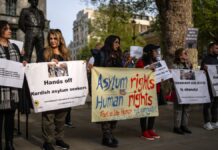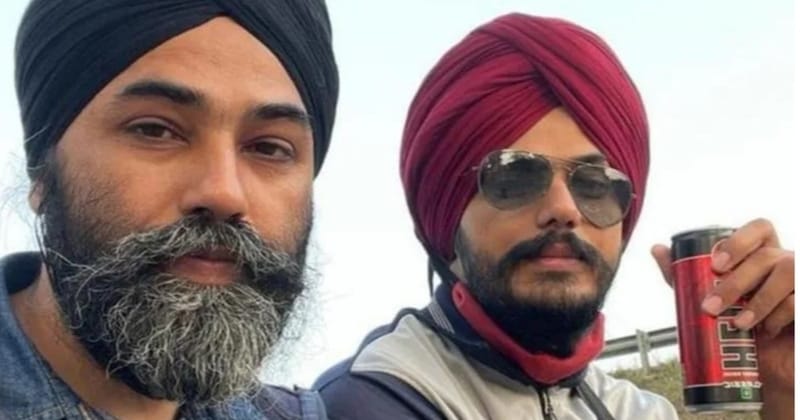 In a previous article, “The Prejudice Caused By Summary Removal After Visa Waiver Admission: What the Third Circuit Missed in Vera and Bradley”(www.cyrusmehta.com), I discussed the case of Vera v. Attorney General of the U.S., in which the U.S. Court of Appeals for the Third Circuit held that a woman who had entered the United States at the age of 12 under the Visa Waiver Program (VWP) could be removed without a hearing before an immigration judge, even though the government could not produce proof that she had actually waived her right to such a hearing.
In a previous article, “The Prejudice Caused By Summary Removal After Visa Waiver Admission: What the Third Circuit Missed in Vera and Bradley”(www.cyrusmehta.com), I discussed the case of Vera v. Attorney General of the U.S., in which the U.S. Court of Appeals for the Third Circuit held that a woman who had entered the United States at the age of 12 under the Visa Waiver Program (VWP) could be removed without a hearing before an immigration judge, even though the government could not produce proof that she had actually waived her right to such a hearing.
The Third Circuit in Vera relied on a presumption that the waiver must have been properly executed since this was required by statute in order for Ms. Vera to be admitted under the VWP, and also on the argument, first accepted by the Third Circuit in the case of Bradley v. Attorney General of the U.S., 603 F.3d 235 (3d Cir. 2010), that there was no prejudice to Ms. Vera from any lack of a knowing and voluntary waiver because the summary removal that she now faced was the same consequence that she would have faced if she had refused to sign the waiver.
As explained in my previous article, the assertion of lack of prejudice that formed an important part of the Third Circuit’s initial decision in Vera was based on an error. It has now become apparent that the presumption of a proper waiver in the Third Circuit’s decision was also based on an error, one that helps illustrate why courts in the immigration context should be reluctant to indulge unproven executive-branch assertions about how something must have happened.
The Third Circuit has now had to vacate its decision in Vera, because the government discovered that Ms. Vera actually was not admitted under the VWP at all!
As discussed in a June 11 post on AILA’s Slip Opinion blog, following the Third Circuiit’s March 1 decision in her case, Ms. Vera secured pro bono counsel to represent her in a petition for rehearing en banc before the Third Circuit, and they in conjunction with the New York State Youth Leadership Council succeeded in getting her released from immigration detention in April after she had been detained for nine months.
Then, as reported on May 21 by Ms. Vera’s new pro bono counsel at the Heartland Alliance’s National Immigrant Justice Center (NIJC) , to whom congratulations are due, the Department of Homeland Security (DHS) cancelled the removal order against Ms. Vera after belatedly realizing that Ms. Vera had not been admitted under the VWP, and the Office for Immigration Litigation (OIL) (federal court lawyers who represent DHS), filed a motion to throw out Vera’s immigration case.
On May 25, at the urging of Ms. Vera’s new NIJC counsel, Ms. Vera was granted deferred action in the exercise of prosecutorial discretion. And in an order issued on June 13, the Third Circuit vacated its earlier decision in Vera and dismissed the case, because there was no longer any final order of removal and thus nothing for the Third Circuit to review.
In its June 13 order vacating its earlier decision, the Third Circuit stated: “The Court notes that it based its decision on the incorrect representation of the Department of Homeland Security that petitioner was admitted to the United States under the Visa Waiver Program and further notes that petitioner did not challenge this representation.”
The original March 1 decision had acknowledged that Ms. Vera “did not concede expressly that she entered the United States under the VWP” but concluded that the government’s assertions, plus Ms. Vera’s failure to contend otherwise, left the Court “satisfied” that such was the case:
In her opening brief in this Court, Vera did not concede expressly that she entered the United States pursuant to the VWP. But the government in its answering brief pointed out that Vera stated that she was admitted under the VWP in the Record of Sworn Statement that she executed when Immigration and Custom Enforcement officers took her into custody and that her father, in an affidavit submitted on her behalf, made the same representation.
Though she had the opportunity in her reply brief to contest the government’s representation of the contents of those documents she did not do so nor does she deny now that she entered the United States under the auspices of the VWP. Moreover, she does not contend that she entered the United States on any basis other than under the VWP. In these circumstances, we are satisfied that she entered pursuant to the VWP. We also point out that there is no indication in the briefs or the record on the petition before us that she ever has left this country since the time of her entry. – Vera v. Att’y Gen., 11-3157 (3d Cir. March 1, 2012), slip op. at 4 n.3.
That is, the Third Circuit concluded from the government’s unchallenged descriptions of prior statements made by Ms. Vera and her father that Ms. Vera must have been admitted under the VWP, despite the lack of any documentation showing this to be true. This despite the fact that Ms. Vera was describing events that had happened more than 10 years ago, in September of 2000, when she was only 12 years old.
Although hindsight is, to be sure, 20-20, it is problematic to expect someone to have definitive knowledge of what specific immigration-law provision she entered under many years ago during her childhood, and it is not that much better to rely on the recollection even of an adult layman regarding the legal details of an immigration-related event that occurred more than a decade ago.
(To be continued)
David A. Isaacson






